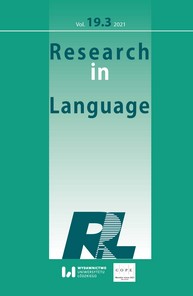CONTEXTS AND CONSEQUENCES OF SENTENCE SPLITTING IN TRANSLATION (ENGLISH-FRENCH-CZECH)
CONTEXTS AND CONSEQUENCES OF SENTENCE SPLITTING IN TRANSLATION (ENGLISH-FRENCH-CZECH)
Author(s): Olga NádvorníkováSubject(s): Syntax, Comparative Linguistics, Western Slavic Languages, Translation Studies, Stylistics
Published by: Wydawnictwo Uniwersytetu Łódzkiego
Keywords: sentence splitting; translation; non-finite verb forms; coordination; simplification; normalization;
Summary/Abstract: The present paper examines the contexts and consequences of sentence splitting in English, Czech and French translated fiction. In the data extracted from a parallel (multilingual) corpus, we analyze first a language-specific context of sentence splitting (sententialization of non-finite verb forms in translations from English and French into Czech), and second, contexts of splitting occurring in all directions of translation. We conclude that sentence boundaries are usually introduced at the point of a sentence entailing the fewest modifications in the target sentence, especially between two coordinate clauses; and that a systematic sentence splitting, deeply modifying the style of the source text, involves the effect of simplification and normalization.
Journal: Research in Language (RiL)
- Issue Year: 19/2021
- Issue No: 3
- Page Range: 229-251
- Page Count: 23
- Language: English

